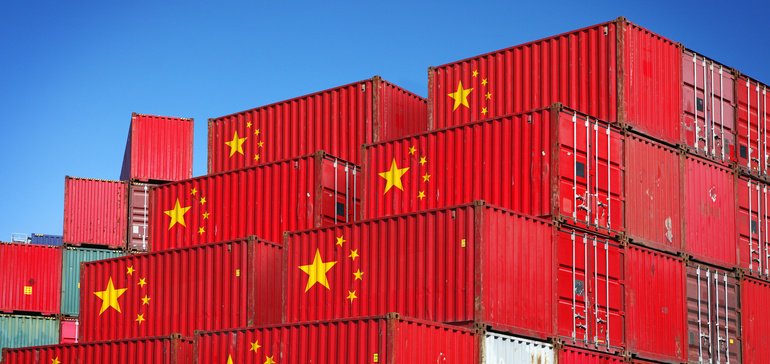
China Impacts Massachusetts Recycling
China is the world’s largest importer of recycled materials. In March 2018, the Chinese Ministry of Environmental Protection enforced a new standard for the quality of recycled materials that China will purchase, which reduces contamination from 3 percent to 0.5 percent. As a result, the recycling industry in Massachusetts has had to rethink how it recycles.
Gretchen Carey, president of MassRecycle, tells WBUR, “In the Greater Boston area, 80 to 90 percent of our material had gone to China.” Since the new standard took effect, prices for recycled materials have plummeted. For example, the price of mixed paper has fallen from $75 per ton to less than $5. This shift impacts how MassRecycle conducts business, which affects local municipalities.
WBUR notes that local municipal budgets have been thrown out of order, “Massachusetts cities and towns, which are required to recycle household materials, are now scrambling to pay for something that used to turn a profit.” The cost of increased recycling and processing is substantial. According to Gunther Wellenstein, recycling coordinator for Lowell, the city’s new contract for recycling and processing may cost nearly $500,000 per year.
Coordinators like Wellenstein cover these costs by finding money elsewhere in the budget. Wellenstein says, “Half a million can come out of public safety, public education, economic development.” While some may see this as a waste of municipal funds or as unfair to other public service programs, Wellenstein adds, “You have to pay for the increase in trash.”
Single-stream recycling is another factor that has made China’s new policy so disruptive. Single-stream recycling is the system familiar to most people, in which all recyclable materials are deposited into the same bin and collected for processing. Massachusetts has eight Municipal Recovery Facilities (MRF) that process recycled materials.
According to WBUR, nearly 25 percent of waste collected by the Charlestown MRF cannot be recycled because of contamination or because the material is nonrecyclable. The remaining 75 percent is distributed into a waste stream and sorted into mixed paper, plastics, glass, and metals. Massachusetts’ MRFs are designed to reduce contamination to 3 percent, but they now must work to meet the new 0.5 percent standard.
When China first declined to purchase U.S. recycled materials due to contamination, commodity dealers shipped to new markets in Thailand, in India, and in Vietnam. However, these countries now also refuse to purchase recycled materials from the U.S. This means that much of the waste we recycle ends up in landfills.
Each year Massachusetts produces upward of 5.5 million tons of solid waste, 25 to 35 percent of which is recycled. The rest is deposited across 12 landfills in the state. As those sites reach capacity, up to one-third of the waste tonnage is shipped to Ohio, Pennsylvania, and New York for processing and disposal.
Two relatively easy ways for communities to help the problem are to be mindful of what gets recycled and to make sure that materials are indeed recyclable. Wash plastic containers, such as yogurt cups and peanut butter jars. Pizza boxes with grease stains are okay. Bowling balls and other Marie Kondoed household items are not.
On a macro-level, new markets need to be created for recycled materials. Massachusetts has started to offer “grants to cities and local companies so they can buy grinders to turn … recycled glass into an aggregate to use for building sidewalks and roads and filling potholes.” Although no one solution can address every aspect of the problem that the recycling industry faces, smaller cumulative steps go a long way to help.
What other solutions have your community or municipality considered or implemented to help solve the recycling problem? Leave a comment to let us know!
Source:
Gellerman, Bruce, “How a New Policy in China Has Led to a Recycling Crisis in Mass.,” WBUR, accessed March 20, 2019.

No Comments